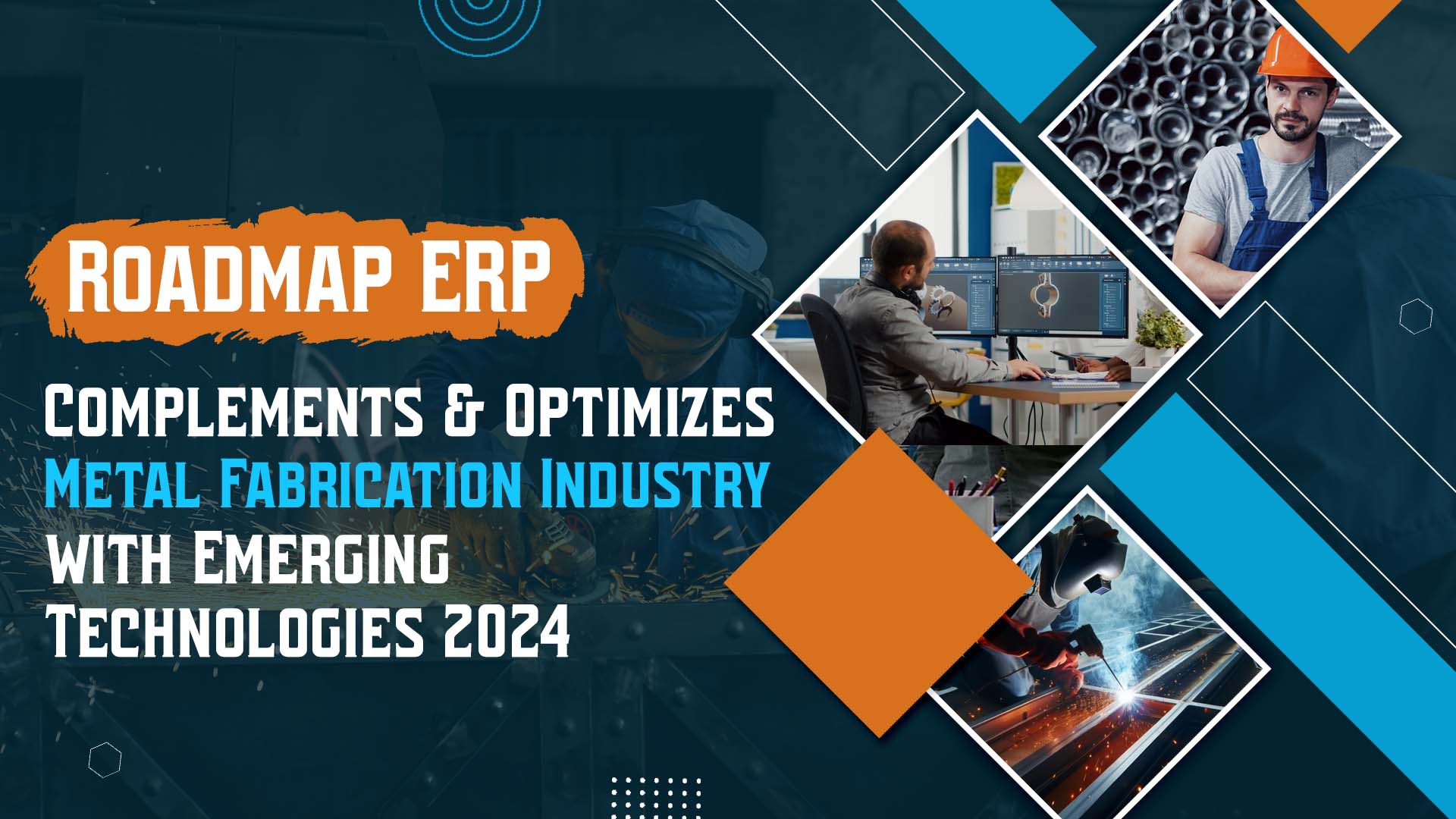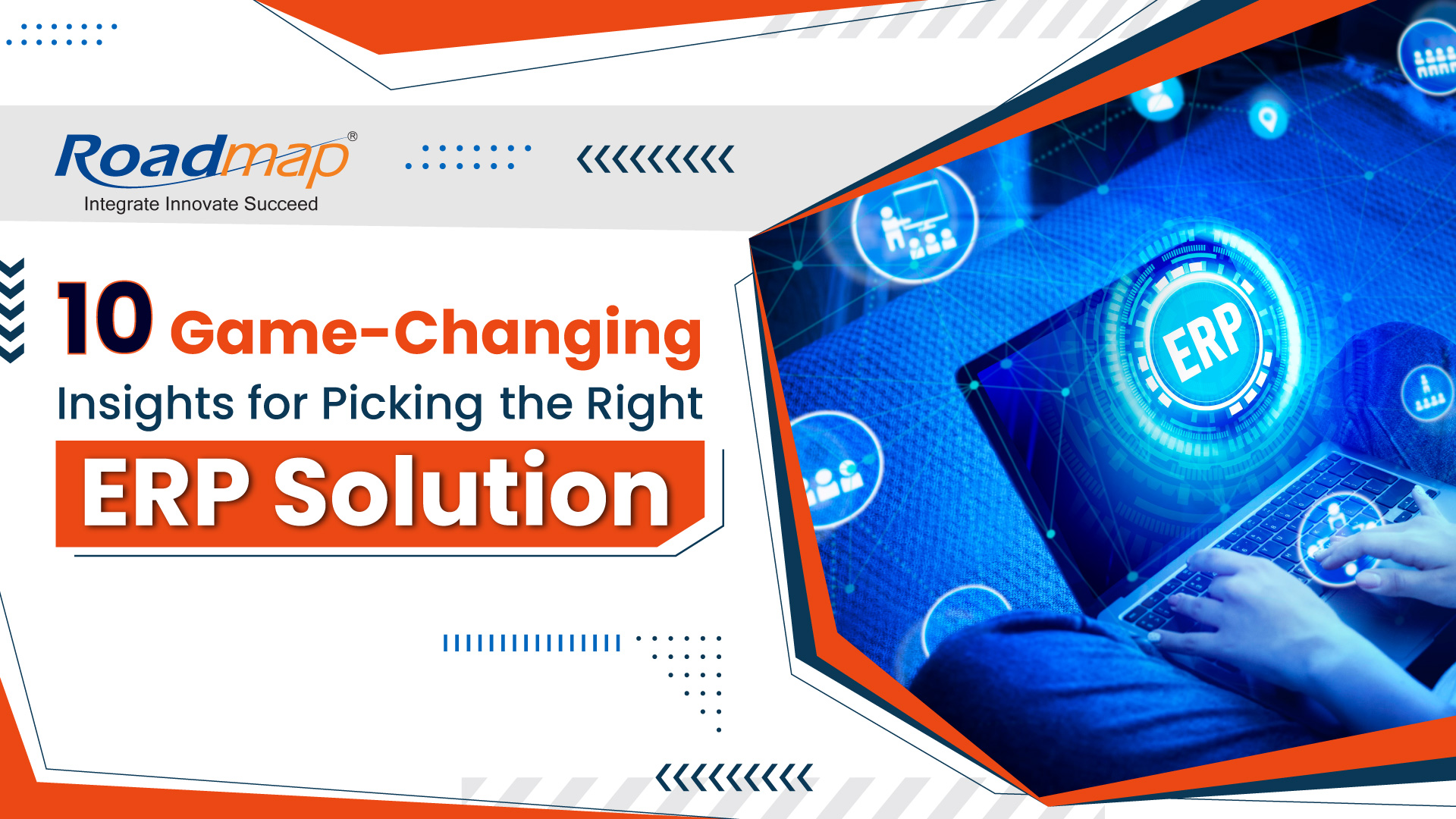
- Roadmap
- 17-May-2024 10:42:09
Roadmap ERP Complements and Optimizes Metal Fabrication Industry with Emerging Technologies 2024
The surge of automation (AI) and digital transformation in the industrial world could not be ignored in recent years, and the metal fabrication industry is no different. Serving as the backbone of several manufacturing industries, a single metal fabricator might produce components and assembled metal parts for a wide array of industries that include, but are not limited to Automobiles, Electronics, Energy, and Construction. Though it is a centuries-old industry, metal fabricated parts and products have a perpetual need and demand in the market. The interesting thing is that Small and Medium-Sized (SME) Enterprises hold a major market share in the metal fabrication industry in India.
On the other hand, the metal fabrication industry needs a leadership transition as the owners of Generation X have been using legacy business management software systems to run their business operations for years since the 1990s, which will not be suitable for future business operations and development. Time has reaped now for leadership transition. The ownership successors are Millennials and Generation Z who have grown on the industry shop floor and are aware of the business operations, technological transition, and the future of sustainable business.
The metal fabrication industry has been experiencing disruptive technological trends in recent years that have changed the face of the industry. These include the latest innovations in CAD/CAM software tools, automation and collaborative robotics, 3D printing/additive manufacturing, advanced materials, IoT, and Industry 4.0 technologies.
Roadmap offers robust ERP solutions to the metal fabrication industry by incorporating emerging technologies and ensuring that every metal piece is a testament to quality and innovation.
Integration of Roadmap ERP with CAD/CAM Software Tools: CAD/CAM integration with Roadmap ERP systems enables better production planning and scheduling. By analyzing design data and production capacities, ERP systems can generate optimized production schedules, reducing lead times, and maximizing resource utilization. This leads to increased throughput and improved on-time delivery performance. These marvels of automation translate digital designs into tangible reality with unparalleled accuracy.
Integration of Roadmap ERP with CNC Machine: By interfacing directly with Roadmap ERP systems, CNC machines gain access to real-time data, empowering them to adapt dynamically to changing demands. With a digital handshake between Roadmap ERP and CNC, data flows effortlessly, orchestrating the intricate ballet of metal fabrication. Material specifications, design blueprints, and production schedules seamlessly converge, transforming raw materials into precision-crafted components.
Roadmap ERP with 3D Printing or Additive Manufacturing: By integrating 3D printing capabilities into Roadmap ERP system, design iterations can be rapidly prototyped and tested, allowing for quicker product development cycles and fostering a competitive edge in the market. Complex geometries are executed with unparalleled accuracy, lead times are shortened, and costs are minimized. Adopting additive manufacturing within ERP ecosystems promotes sustainability by minimizing material waste and energy consumption. Additionally, localized production reduces carbon emissions associated with transportation.
Roadmap ERP with Automation and Collaborative Robotics (COBOTS): In the ever-evolving landscape of the metal fabrication industry, staying ahead of the curve is imperative for sustainable growth and competitive advantage. As technology continues to advance at an unprecedented pace, the integration of ERP systems with AI technologies and collaborative robotics (COBOTS) emerges as a transformative force, revolutionizing traditional manufacturing processes.
COBOTS are designed to work alongside human operators, augmenting their capabilities and fostering a collaborative environment on the factory floor. By leveraging AI algorithms, COBOTS can adapt to dynamic environments, learn from human interactions, and perform intricate tasks with precision and agility. From material handling and welding to assembly and inspection, AI-powered COBOTS redefine the boundaries of efficiency and safety, enabling metal fabrication companies to achieve new levels of productivity and flexibility.
Roadmap ERP with Internet of Things (IoT) and Industry 4.0: With technologies like AI, machine learning, and big data analytics, Industry 4.0 not only amplifies efficiency but also crafts a symphony of predictive insights. Altogether, ERP, IoT, and Industry 4.0 weave a tapestry of connectivity and intelligence. They synchronize supply chains, optimize workflows, and compose a symphony of operational excellence.
Embracing Digitalization: As we navigate through the labyrinth of digitalization, Roadmap ERP emerges as the guiding light, illuminating paths toward operational excellence, efficiency, and unparalleled precision. From raw material procurement to intricate design iterations, from manufacturing orchestration to supply chain optimization, Roadmap ERP transcends the mundane, infusing each operation with the essence of innovation.
Conclusion: Remember, adopting and adapting to the future-oriented business management system is not just about keeping up with the times; it's about staying ahead of the curve. Roadmap ERP system could be the key to unlocking efficiency, reducing costs, and exceeding customer expectations in an ever-evolving medical fabrication industry. We're in the early stage of the new decade with the trends and technologies in metal fabrication since 2020. We will continue to grow and adapt as we make our way into the future. Things like digitalization, collaborative robots, and 3D printing will continue making the metal fabrication industry more efficient and productive as we look at 2024 and beyond.




